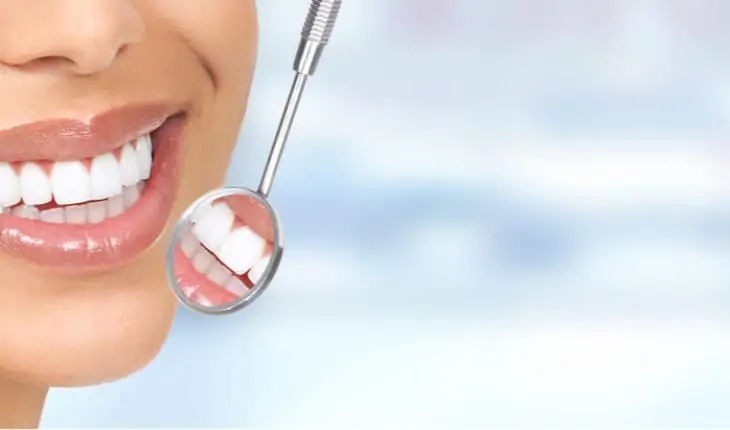AROUND 20 MILLION UK ADULTS currently have signs of tooth decay – according to new data – even though it is entirely preventable.
More than one-in-three (36%) British adults have had toothache during the pandemic – one of the leading signs of tooth decay.
The Oral Health Foundation, a charity working to improve oral health in the UK, is concerned to find that more than one-in-ten (11%) of those who have had toothache, are deciding to ignore it and not seek help.
Tooth decay often leads to a filling, and if not caught early, can result in root canal treatment or a tooth extraction.
As part of the health campaign, The Truth About Tooth Decay, experts at the Oral Health Foundation and Colgate-Palmolive, are keen to communicate that a healthy mouth and being free of oral disease is in completely your hands. All it takes is the correct care.
The good news is that preventing tooth decay can be both easy and affordable. Here are four of the most effective ways to prevent tooth decay.
Caring for your teeth
Brushing your teeth thoroughly last thing at night and at least one other time during the day, with a 1450ppm fluoride toothpaste is the most effective way to prevent tooth decay.
Despite this, nearly one-in-five (19%) British adults do not brush their teeth at least twice a day. And according to new research by the charity, around one-in-seven (14%) do not believe brushing lowers the risk of tooth decay.
Chief Executive of the Oral Health Foundation, Dr Nigel Carter OBE says: “It is easy to get your mouth clean and healthy, and keep it that way. A simple routine can help prevent most dental problems.
“Brushing twice a day, including last thing at night is the best way to keep teeth healthy. Make sure that you brush the inner, outer and biting surfaces of your teeth and along the gum line. This should take around two minutes.
“It is also really useful to use ‘interdental’ brushes, or dental floss or tape, which helps to remove plaque from between your teeth and where they meet the gums. These are areas an ordinary toothbrush can’t reach.”
Cut down on how much and how often you have sugary foods and drinks
Sugar is a direct cause of tooth decay and during the pandemic, consumption has risen. One-in-five (20%) admit their diets have become unhealthier during lockdown.
To reduce your risk of tooth decay, have sugary foods and drinks less often. Also try to avoid having unhealthy snacks between meals, to limit the number of times your teeth are under acid attack.
Chewing sugar-free gum after a meal can help your mouth produce more saliva, which helps to cancel out any acids that have formed.
Scientific Affairs Project Manager at Colgate, Dr Emanuele Cotroneo, adds: “To protect your teeth from decay, it is a good idea to limit sugar intake in between meals, and avoid it completely before going to bed. This is because you produce less saliva while you sleep. Without a healthy production of saliva, tooth decay is more likely.”
Dr Carter adds: “Tooth decay can also be more common for those who are on medications containing sugar. If you think that your medication might be having an effect on your oral health, seek the advice from your GP who may be able to recommend sugar-free alternatives.”
Visiting your dental team
Visiting your dental team regularly, as often as they recommend, can help you manage your oral health, including how to prevent tooth decay.
Manchester-based dentist, Dr Ben Atkins says: “This is because your dental team can spot tooth decay in the early stages and treat the condition before it has a chance to worsen. Without this intervention, a cavity will need a filling, or in more severe cases, the tooth removed entirely.
“They can also help you with advice and information to help you care for your mouth at home. They can show you correct cleaning techniques, advise you on what products to use, and give guidance about how your diet and lifestyle may be affecting your oral health.”
According to new data collected by the charity, more than one-in-five (21%) of UK adults have not seen a dentist in over two years.
Fluoride
Fluoride is a mineral that can be naturally found in many foods and in all drinking water. The amount of fluoride in water varies from area-to-area.
Fluoride is also the most important ingredient in toothpaste, helping to protect against tooth decay. Despite this, awareness of the benefits of fluoride remains low.
As few as one-in-four (27%) are aware that fluoride can prevent tooth decay, according to the charity’s research.
Dr Cotroneo says: “Fluoride can greatly help dental health by strengthening the tooth enamel, making it more resistant to tooth decay. Most of our fluoride, however, is found in toothpaste. When buying toothpaste, make sure it contains fluoride.
“Sometimes, your dental team might choose to give you a prescription for a toothpaste that contains higher levels of fluoride. They may do this if you have any of the signs associated with tooth decay or are at increased risk of tooth decay.”
Dr Atkins adds: “When brushing your teeth, remember to spit out after brushing and do not rinse your mouth out with water. This means the fluoride stays on your teeth longer and helps protect them from decay.”
To help more people identify the signs of tooth decay and prevent the disease, the charity has partnered with Colgate-Palmolive to launch a new educational campaign. The Truth About Tooth Decay also gives advice for identifying your risk of the disease provides information for treating the condition.
Other symptoms of tooth decay include tooth sensitivity to sweet things, an unpleasant taste in the mouth or dark spot on the surface of the tooth.
If you notice any of the early signs of tooth decay, contact your dentist. The sooner tooth decay is treated, the easier and more effective the treatment will be.
For anybody looking for help or support with their oral health, the charity also has a Dental Helpline which offers free advice. You can call the Dental Helpline on 01788 539780 or email [email protected].
- New lipid-based pathway discovered as key to memory formation - 25th June 2025
- Crucial link could explain how Alzheimer’s takes hold - 25th June 2025
- Understanding Your Mind Can Improve Daily Life - 25th June 2025







